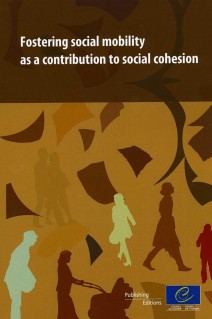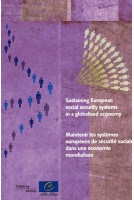Social mobility is linked to social cohesion in a number of complex ways. In essence it concerns social fairness and is a measure of how equal economic opportunities or life chances are, and how a society transforms principles of equal opportunity into reality.Intergenerational mobility of income or socio-economic status demonstrates the real extent to which equality exists in a society. A more cohesive society is one where people are not divided on socio-economic or other grounds, citizens accept that the division of rewards is fair and everyone has equal starting points in life.This study examines the factors influencing social mobility and policies which might be put in place to facilitate it, in particular those concerning welfare services, child care, the education system, career structures and labour-market services.
Foreword
Summary
1. Background and introduction
2. About the project
3. What is social mobility?
4. Social mobility in Europe and North America
5. Determinants of differential levels of social mobility
6. Summary of case studies
7. Discussion and conclusions
8. References
9. Appendices












